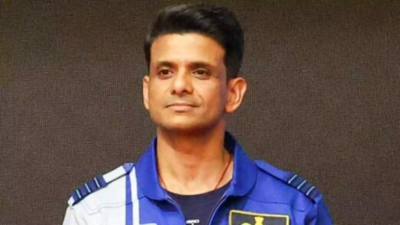ARTICLE AD BOX

NEW DELHI: Axiom Mission is all set to take off at 12:01 pm IST on Wednesday from Nasa's Kennedy Space Center towards the International Space Station. The mission, carrying India's Shubhanshu Shukla, Anne McClain, Nichole Ayers, and Peggy Whitson, will transport the four Ax-4 private astronauts to low Earth orbit, with docking scheduled at the orbital outpost's space-facing port on the Harmony module at 4:30 pm IST on Thursday for a fortnight of scientific research.This means the journey from launch to docking will take roughly 28.5 to 29 hours. The crew will spend about two weeks docked at the ISS conducting scientific research and outreach activities during the mission.

What Astronauts will do in 14-day mission
Once they arrive, the Axiom crew members are expected to stay for about two weeks. They will conduct research for dozens of scientific studies on behalf of 31 nations, including not only the astronauts’ home countries but also Saudi Arabia, Brazil, Nigeria and others.This will be the most research and science-related activities conducted on an Axiom Space mission aboard the International Space Station to date, underscoring the mission's global significance and collaborative nature to advance microgravity research in low-Earth orbit (LEO). The mission emphasizes scientific portfolios led by the U.S., India, Poland (in partnership with ESA), and Hungary. The studies will cover how cancers behave in low-earth orbit, wireless acoustics, microalgae in space, 3-D-printed polymers, DNA repair and other subjects.
What is the role of astronaut Shukla in mission
Nasa flight engineers Anne McClain and Nichole Ayers will oversee Dragon's automated approach and rendezvous procedures on Thursday. The Ax-4 crew, consisting of Commander Peggy Whitson, Pilot Shubhanshu Shukla, and Mission Specialists Sławosz Uznański-Wiśniewski and Tibor Kapu, will enter the space station within two hours of docking. Upon arrival, they will meet the seven Expedition 73 crew members, conduct Earth communications for welcome remarks, and receive a mandatory safety briefing with the station occupants.Specifically, Shukla will oversee the Isro's led reaserch which has undertaken collaborative research initiatives with Nasa and ESA, concentrating on microgravity studies at the International Space Station. These investigations aim to broaden scientific knowledge of biological systems under zero-gravity conditions and establish protocols for extended space expeditions. These scientific undertakings are positioned to achieve substantial progress in space-related research and technology, whilst encouraging upcoming Indian researchers and technical professionals. The Ax-4 mission reinforces India's space capabilities and showcases the nation's commitment towards worldwide scientific advancement.The research programme encompasses:
- Assessment of digital screen effects on physical and mental functions in zero gravity.
- Analysis of three microalgae variants' development, metabolic processes, and genetic characteristics in space versus Earth conditions.
- Evaluation of development patterns, cellular behaviour, and biochemical aspects of two cyanobacteria types in space.
- Research into skeletal muscle deterioration mechanisms in space and potential treatment approaches.
- Assessment of space environment effects on six varieties of agricultural seeds.
- Analysis of space conditions' influence on seed sprouting and plant development.
- Understanding molecular basis of survival mechanisms in harsh conditions.
On Tuesday, the current space station complement of four astronauts and three cosmonauts continued their scientific endeavours, concentrating on research to enhance pharmaceutical production and biotechnology advancement.



.png)
.png)
.png)
















 4 hours ago
2
4 hours ago
2









 English (US) ·
English (US) ·